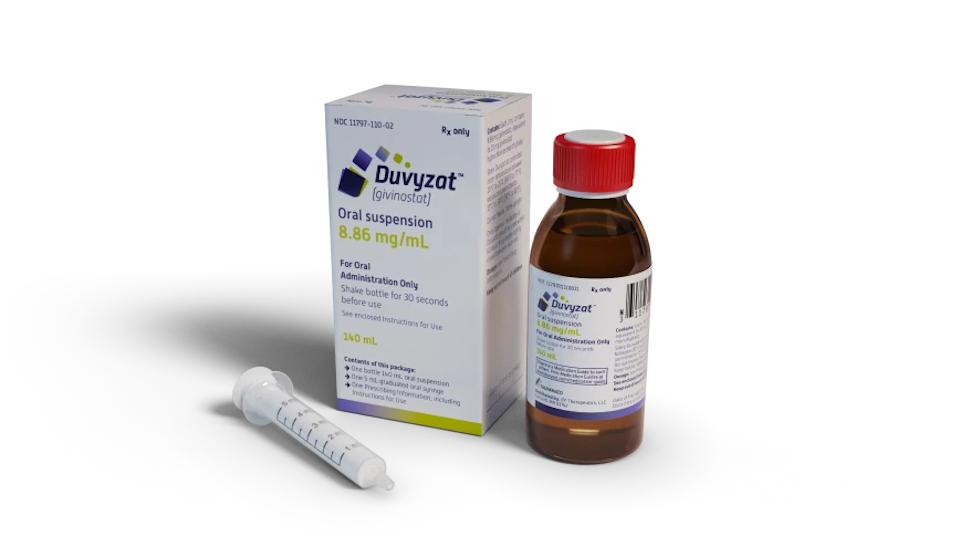Italfarmaco closes on EU okay for Duchenne drug

Italfarmaco's oral HDAC inhibitor Duvyzat has been recommended for approval in the EU as a treatment for Duchenne muscular dystrophy (DMD), setting it on course to become the first non-steroidal option for patients with all genetic variants of the disorder.
The EMA's human medicines committee (CHMP) backed a conditional marketing authorisation for Duvyzat (givinostat) as a treatment for DMD patients aged six and over who are still able to walk (ambulatory) at its April meeting. It has been under review at the EMA since 2023 and was approved for marketing in the US last year.
The drug is thought to restore muscle regeneration, increase muscle mass, and reduce inflammation and scar tissue accumulation in boys with DMD, a progressive muscle-wasting disease that mostly affects boys and typically leads to a life expectancy of 30 years or less.
While there is no cure for the disease, treatments are available in the EU, including Sarepta Therapeutics' range of exon-skipping drugs, Santhera's novel steroid-based therapy Agamree (vamorolone), and PTC Therapeutics' Translarna (ataluren) for DMD patients with nonsense mutations.
Meanwhile, Sarepta's gene therapy Elevidys – which is already approved in the US and partnered with Roche in Europe – is currently under regulatory review in the EU, although, some trials have been halted while a patient death is investigated.
Duchenne patients have a mutation in the gene coding for dystrophin protein that leaves muscle fibres prone to injury and inflammation and with a reduced ability to regenerate. According to Italfarmaco, Duvyzat targets aberrant HDAC enzymes in the muscles of DMD patients, interrupting a cascade of events that lead to muscle damage.
The CHMP recommendation is based on data from 120 patients in the placebo-controlled phase 3 EPIDYS study, which showed slower disease progression over 18 months of treatment with Fuvyzat, including a slower decline from baseline in the time needed to climb four stairs compared to placebo.
The average reduction from baseline was 1.25 seconds for patients receiving Duvyzat compared to 3.03 seconds for the placebo group, according to data published in The Lancet Neurology.
According to the CHMP, improvement in secondary endpoints assessing function, strength, and muscle morphology was not statistically significant, but "all outcomes were more positive in patients treated with givinostat."
Duvyzat is expected to be approved by the European Commission in July, and Italfarmaco said it will "work closely with local authorities to facilitate rapid access" in the EU.
Among other medicines recommended by the CHMP at its latest meeting were:
- Vertex Pharma's Alyftrek (deutivacaftor/tezacaftor/vanzacaftor), for the treatment of cystic fibrosis in people aged six years and older who have at least one non-class I mutation in the CFTR gene;
- Purpose Pharma's Attrogy (diflunisal), for the treatment of polyneuropathy in adults with hereditary transthyretin-mediated amyloidosis (ATTR);
- PTC Therapeutics' Sephience (sepiapterin), to reduce phenylalanine levels in patients with phenylketonuria;
- Amgen's Tepezza (teprotumumab), for moderate to severe thyroid eye disease (TED); and
- Jazz Pharma's Ziihera (zanidatamab), for unresectable locally advanced or metastatic HER2-positive biliary tract cancer (BTC).












